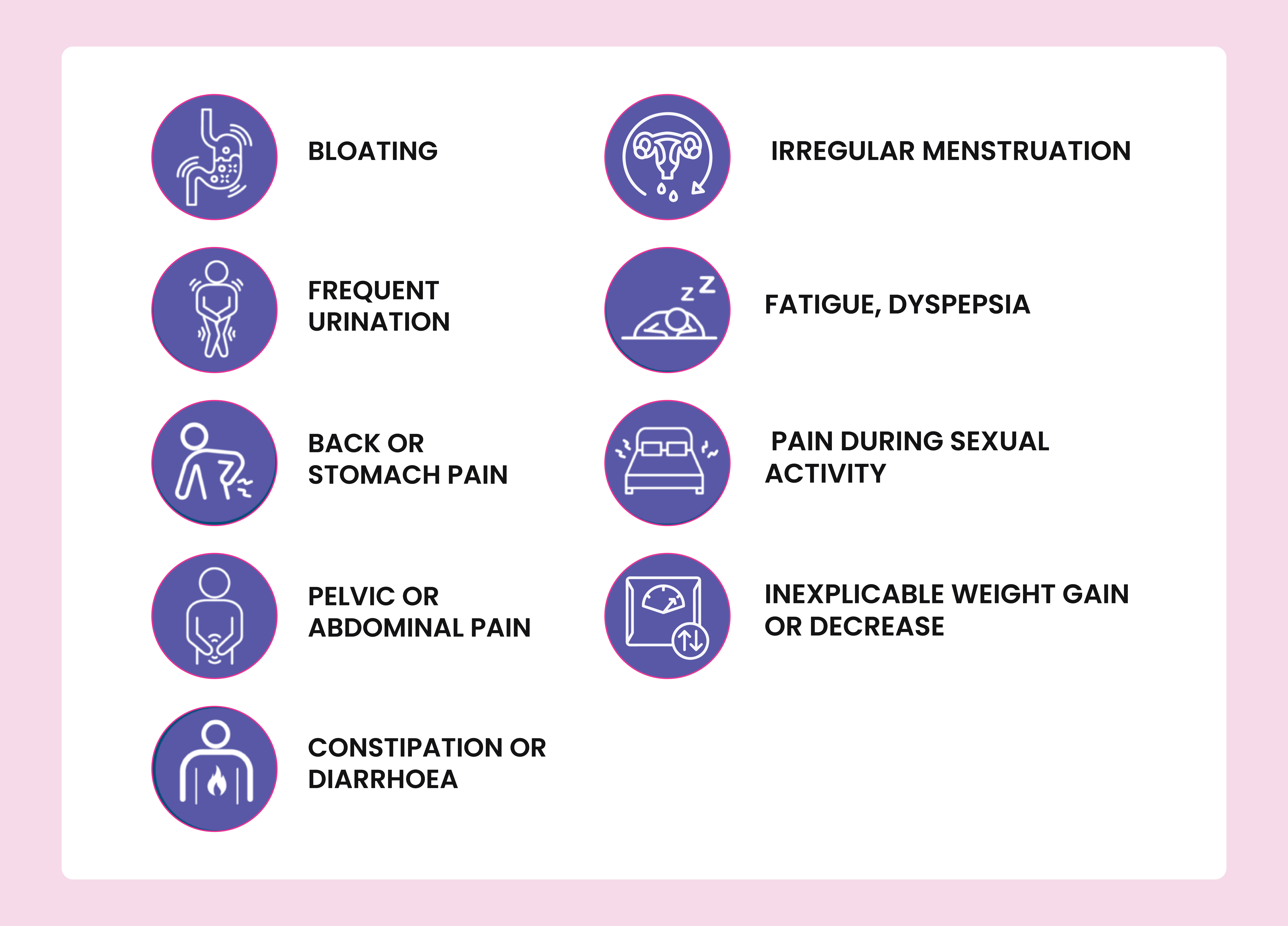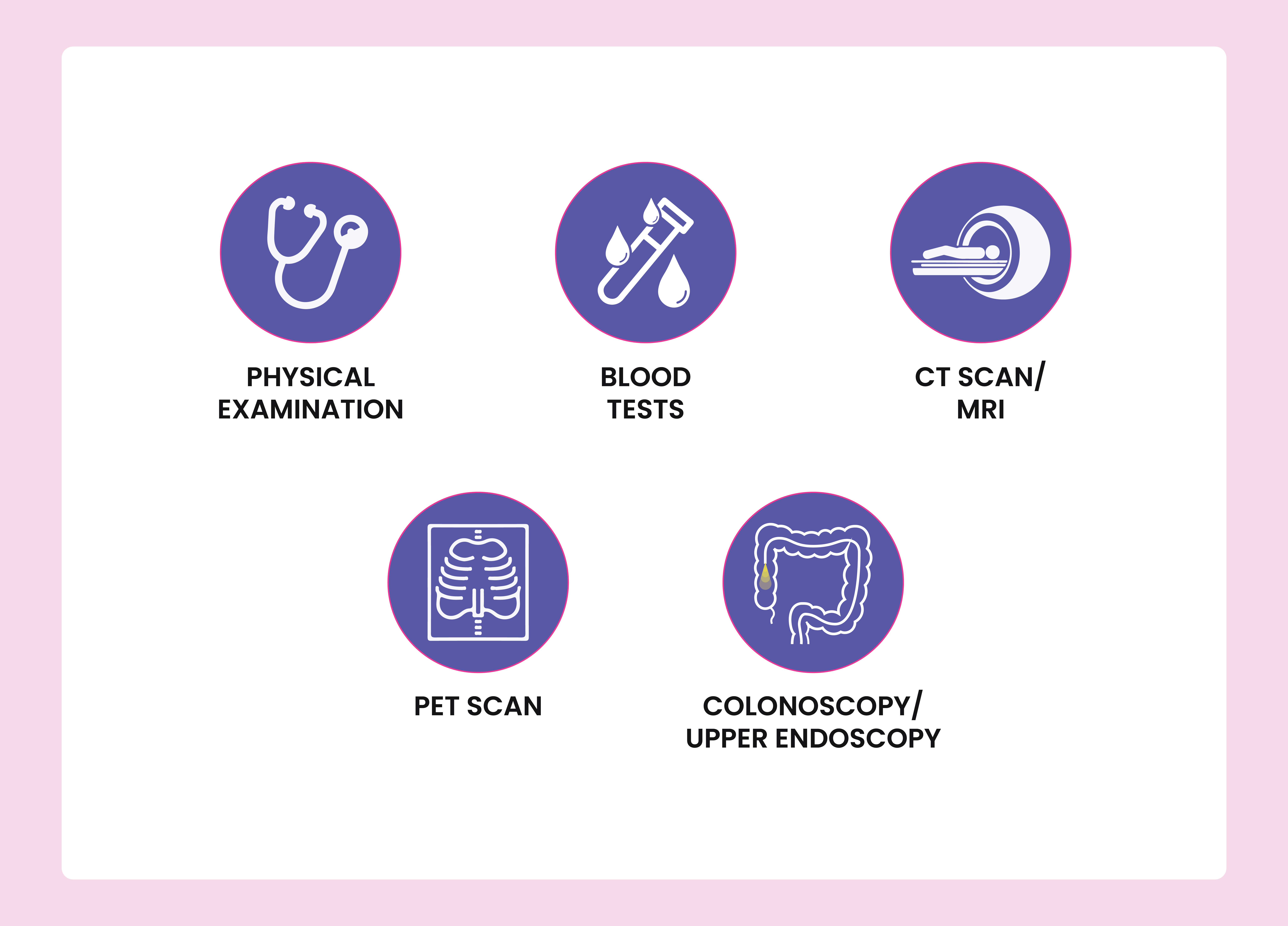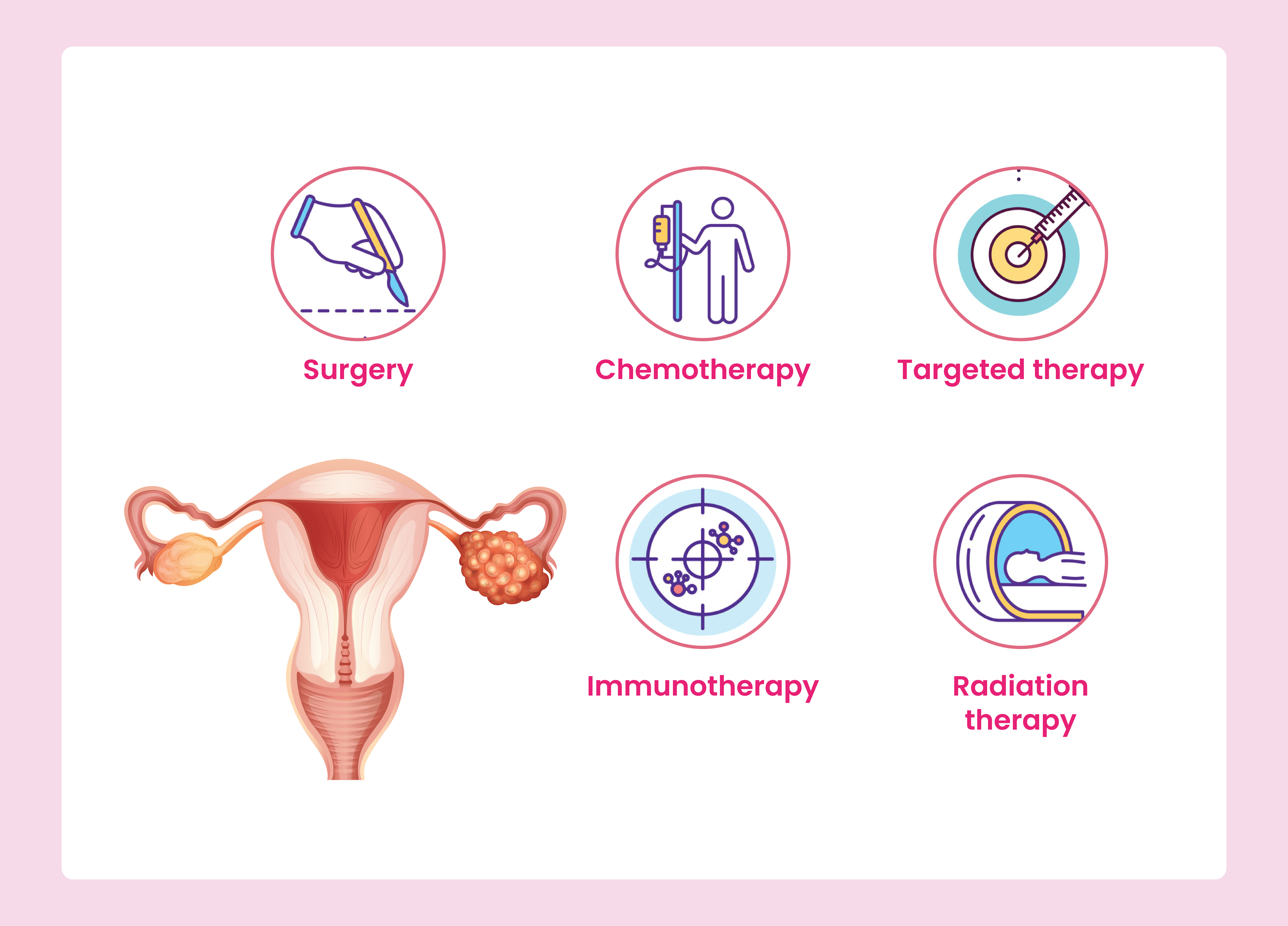
These symptoms might also be caused by other ailments, but if you experience any of them, get in touch with Dr. Manasi Shah, expert in gynecological malignancies in Ahmedabad .
In the event that Dr. Manasi Shah, cancer specialist in Ahmedabad determines that your symptoms could indicate ovarian cancer, the following tests or scans may be recommended to check for cysts, tumors, or other abnormalities:

Once the ovarian cancer is found in a patient, the following step is to stage the disease so that a personalized, effective treatment plan may be developed.

Dr. Manasi Shah is highly regarded for her expertise in ovarian cancer treatment in Ahmedabad. With a compassionate approach and extensive experience, Dr. Shah provides personalized care that incorporates the latest advancements in medical technology. Her dedication to patient well- being and comprehensive treatment plans ensures the best possible outcomes. If you or a loved one are seeking top-tier ovarian cancer care, book an appointment with Dr. Manasi Shah for expert guidance and treatment.
For the best ovarian cancer treatment in Ahmedabad, schedule a consultation with Dr. Manasi Shah today and take the first step towards recovery.
Ovarian cancer is a type of cancer that begins in the ovaries, the female reproductive glands that produce eggs. It is often not detected until it has spread within the pelvis and abdomen, making it more challenging to treat.
Common symptoms of ovarian cancer include:
Risk factors include:
Ovarian cancer diagnosis typically involves:
Ovarian cancer stages range from I to IV:
Treatment options include:
While it cannot be completely prevented, risk reduction strategies include:
Higher risk groups include:
If you have symptoms, you should:
Types include:
Survival rates vary by stage:
Check-up frequency depends on risk factors and medical advice, typically:
Yes, genetic tests can identify BRCA1 and BRCA2 mutations, which increase the risk of ovarian cancer.
Risk-reducing lifestyle changes include:
Support resources include:
Yes, ovarian cancer can recur. Regularly scheduled follow-up appointments are crucial for ongoing monitoring.
Common side effects include:
Ovarian cancer and its treatments can impact fertility. Have a conversation with your doctor about preserving fertility options.
Ovarian cancer can be hereditary, particularly if associated with BRCA1 or BRCA2 mutations.
Consider asking: